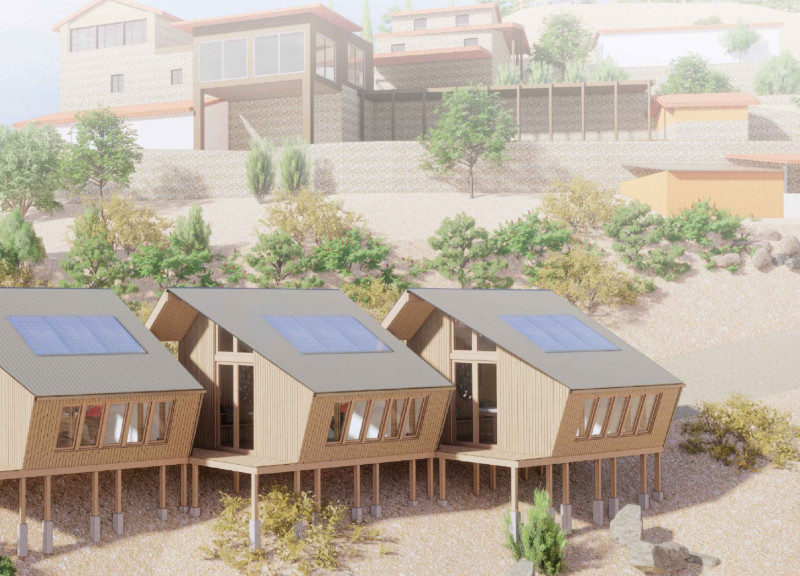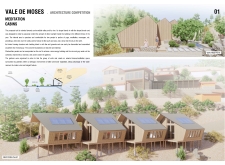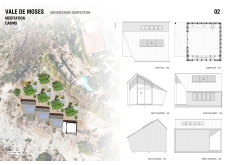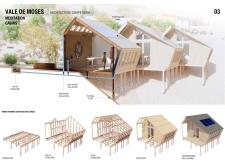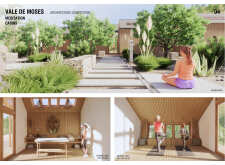5 key facts about this project
The VALE DE MOSES design consists of a set of meditation cabins set in a beautiful valley that encourages interaction with the surrounding natural environment. The aim is to promote well-being through thoughtful orientation and a design that blends with the landscape. These cabins serve as spaces for yoga, meditation, and relaxation. Each unit is crafted to maximize natural light and maintain comfort throughout the seasons, providing a suitable retreat for quiet reflection.
Architecture Concept
The architecture revolves around a close relationship with nature. Each cabin is oriented to capture views of the valley and sky, enriching the calming experience for users. The layout is open and spacious, which allows for two people to feel at ease while connecting with the environment. The design considers how sunlight enters the space, enabling natural heating and lighting, which enhances the tranquility within.
Materials and Structure
The main materials include timber framing and cladding, selected for their capacity to blend with the dry terrain and limit visual disturbance. Timber is a practical choice that supports both sustainability and flexibility; the cabins can be assembled or moved with ease. Minimal concrete foundations provide necessary support without overshadowing the natural landscape, allowing the setting to maintain focus on its beauty.
Sustainability and Water Management
The cabins feature sustainable techniques, with plans for photovoltaic panels to achieve a zero-energy building. Additionally, systems are put in place to collect rainwater and grey water, directing it into a reservoir used for irrigating gardens. This focus on efficient resource use addresses ecological concerns and adds to the vibrancy of the landscape, promoting lush growth around the cabins.
Landscaping and User Experience
The landscape is carefully designed to connect the cabins, creating a unified space for leisure and meditation surrounded by greenery. A variety of plants is included to build an environment that supports biodiversity and offers visual appeal. The water reservoir not only serves as an irrigation resource but also acts as an engaging feature, enriching the overall experience of visitors while enhancing the peaceful atmosphere of the area.


